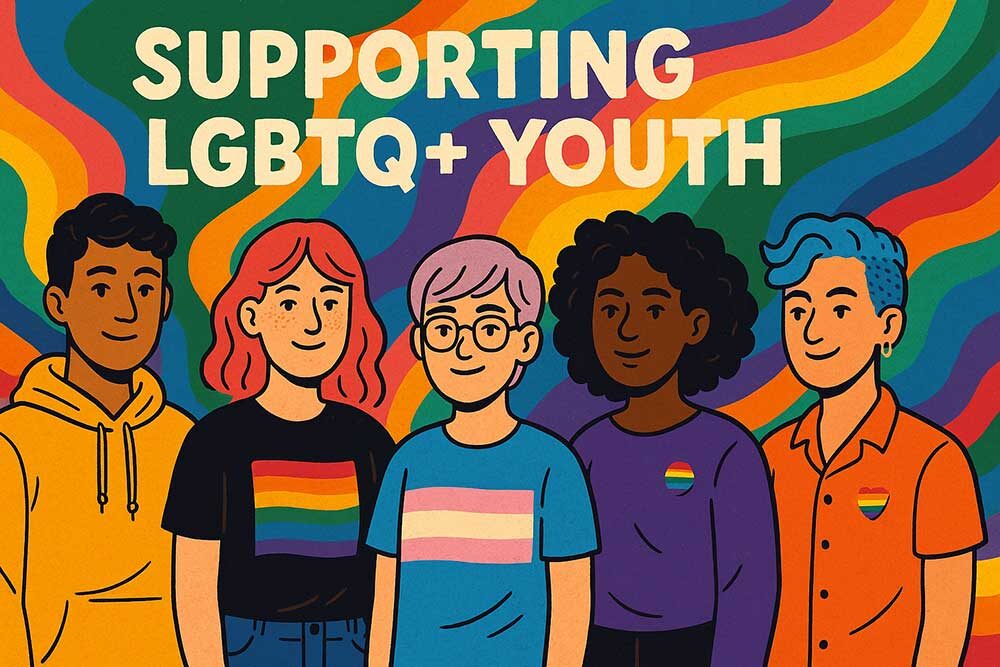The Role of Structure and Mentorship in Preventing Juvenile Delinquency
Juvenile delinquency is a complex social issue that impacts not only the young individuals involved but also families, schools, communities, and society at large. It refers to illegal or antisocial behavior by individuals under the age of 18 and is often linked to a variety of factors such as broken homes, poverty, lack of education, and exposure to violence. However, one of the most effective and often underutilized tools in combating juvenile delinquency is the combination of structure and mentorship. These two components work hand in hand to provide young people with guidance, stability, and the emotional support necessary to make positive life choices.
Why Structure Matters
Structure provides the foundational framework that young people need in order to thrive. This includes consistent routines, clearly defined expectations, firm but fair discipline, and access to constructive activities. Without structure, many adolescents are left to navigate life’s challenges without the tools they need to succeed.
For example, a stable school environment with engaged teachers, scheduled classes, and extracurricular programs can play a critical role in a teenager’s development. Consistent school attendance and academic achievement help young people build confidence, feel a sense of belonging, and develop long-term goals. In contrast, unstructured time—especially in high-risk environments—can lead to boredom, negative peer influence, and eventually criminal behavior.
Additionally, home life plays a significant role. When parents or guardians enforce consistent rules, offer emotional support, and model positive behavior, children are more likely to internalize those values. Unfortunately, in many cases of juvenile delinquency, the home environment is chaotic or neglectful, leaving youth vulnerable to outside influences.
The Power of Mentorship
While structure lays the groundwork, mentorship offers the personal connection and emotional guidance that many at-risk youth desperately need. A mentor serves as a trusted adult who listens, encourages, and challenges a young person to make better decisions. Mentorship is not about control—it’s about connection.
Studies have consistently shown that young people who have mentors are more likely to stay in school, avoid drugs and alcohol, and stay out of trouble with the law. According to research from The National Mentoring Partnership, at-risk youth who have mentors are 55% more likely to enroll in college, 78% more likely to volunteer regularly, and 46% less likely to start using drugs.
Mentors can come from a variety of backgrounds—teachers, coaches, community leaders, or trained volunteers. What matters most is their commitment and consistency. Many young people who engage in delinquent behavior lack a reliable adult figure in their life. A mentor can fill that gap by providing both accountability and encouragement.
Programs That Combine Both
Organizations like Alpha Connection, which has been serving troubled youth for over 37 years, understand the value of integrating structure and mentorship. By providing a structured environment through after-school programs, job training, and community involvement—paired with one-on-one mentorship—Alpha Connection helps young people build the life skills they need to avoid delinquency and succeed as adults.
Other nationwide examples include Big Brothers Big Sisters of America, Boys & Girls Clubs, and community church groups. These programs work because they offer consistent scheduling (structure), positive role models (mentorship), and a safe place where youth feel valued.
The Influence of Positive Peer Groups
An often-overlooked benefit of structured, mentored programs is the exposure to positive peer influences. When youth are surrounded by peers who are focused on personal growth, education, and service, they are more likely to adopt similar behaviors. This is in contrast to unsupervised social circles where criminal behavior may be normalized.
Structured group activities—such as sports teams, music programs, or community service projects—promote teamwork, responsibility, and mutual respect. When combined with mentorship, these activities create an environment where at-risk youth can thrive.
The Role of Schools and Communities
Preventing juvenile delinquency is not solely the responsibility of parents or youth organizations—it requires a community-wide effort. Schools should prioritize hiring counselors, implementing anti-bullying policies, and creating programs that reward positive behavior. Law enforcement agencies can work with community groups to refer youth to support programs rather than pursuing punitive measures for minor infractions.
Local businesses can also contribute by offering internships or job-shadowing opportunities to give young people a glimpse into the working world. When a teenager sees a clear path to a stable and successful future, they are far less likely to engage in risky behavior.
Juvenile delinquency is not an inevitable outcome for any young person. With the right combination of structure and mentorship, even the most at-risk youth can be guided toward a better future. Structure provides the boundaries and support they need to grow, while mentorship offers the emotional connection and guidance necessary to navigate life’s challenges. Together, they form a powerful shield against the pressures and pitfalls that lead to delinquency.
Communities that invest in programs providing both structure and mentorship don’t just help individual children—they build a safer, stronger, and more compassionate society for everyone.













